Hotel Chatbot: Complete Guide to AI-Powered Guest Services
Sep 6, 2025
 Mika Takahashi
Mika TakahashiPopular Categories
Hotel Technology & InnovationHotel Operations OptimizationDigital MarketingIndustry TrendsRevenue ManagementHospitality Industry
Popular Categories
Trending Post
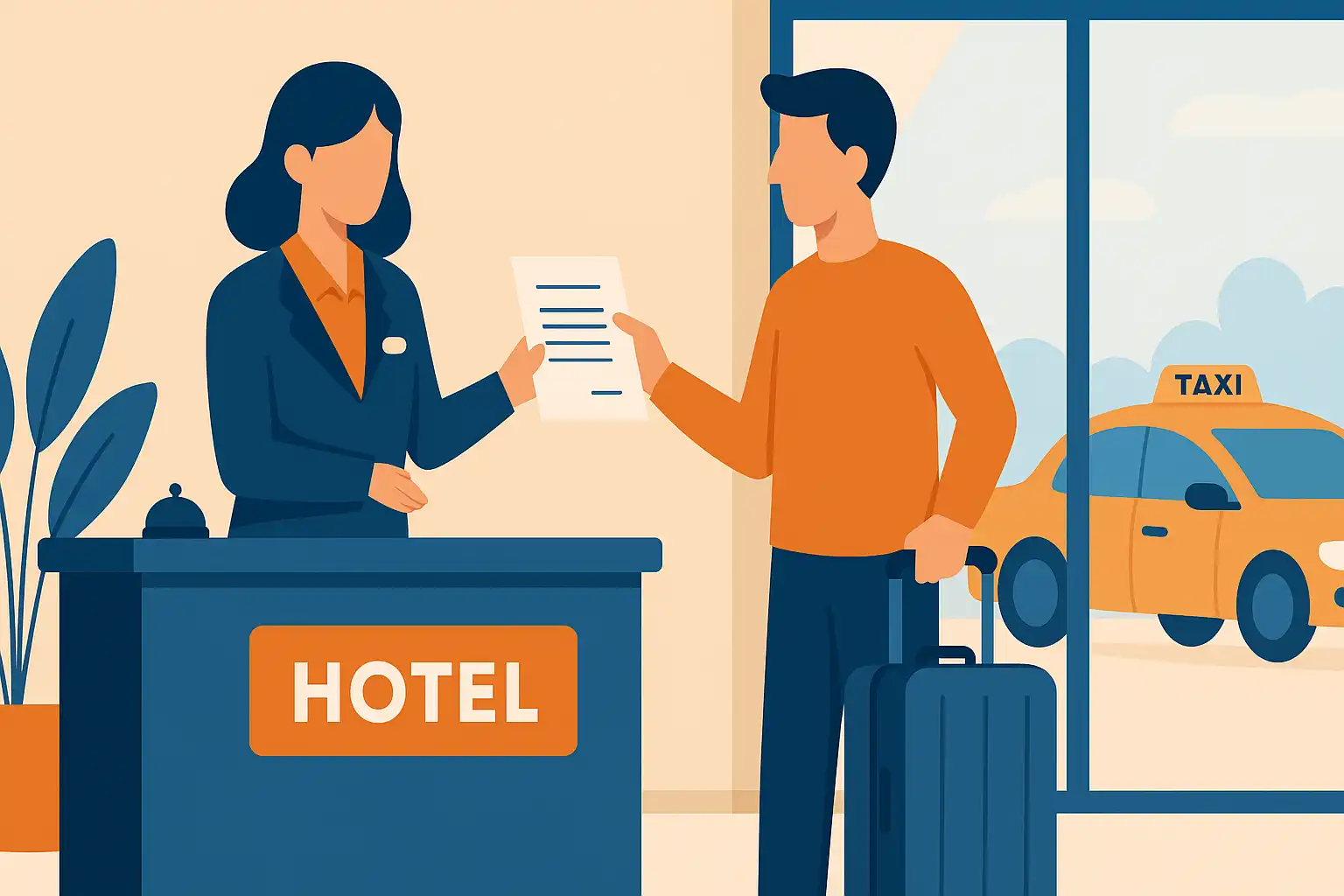
Hotel Walk Letter Template: Professional Guest Communication

Online Travel Agents: What They Are and How They Work
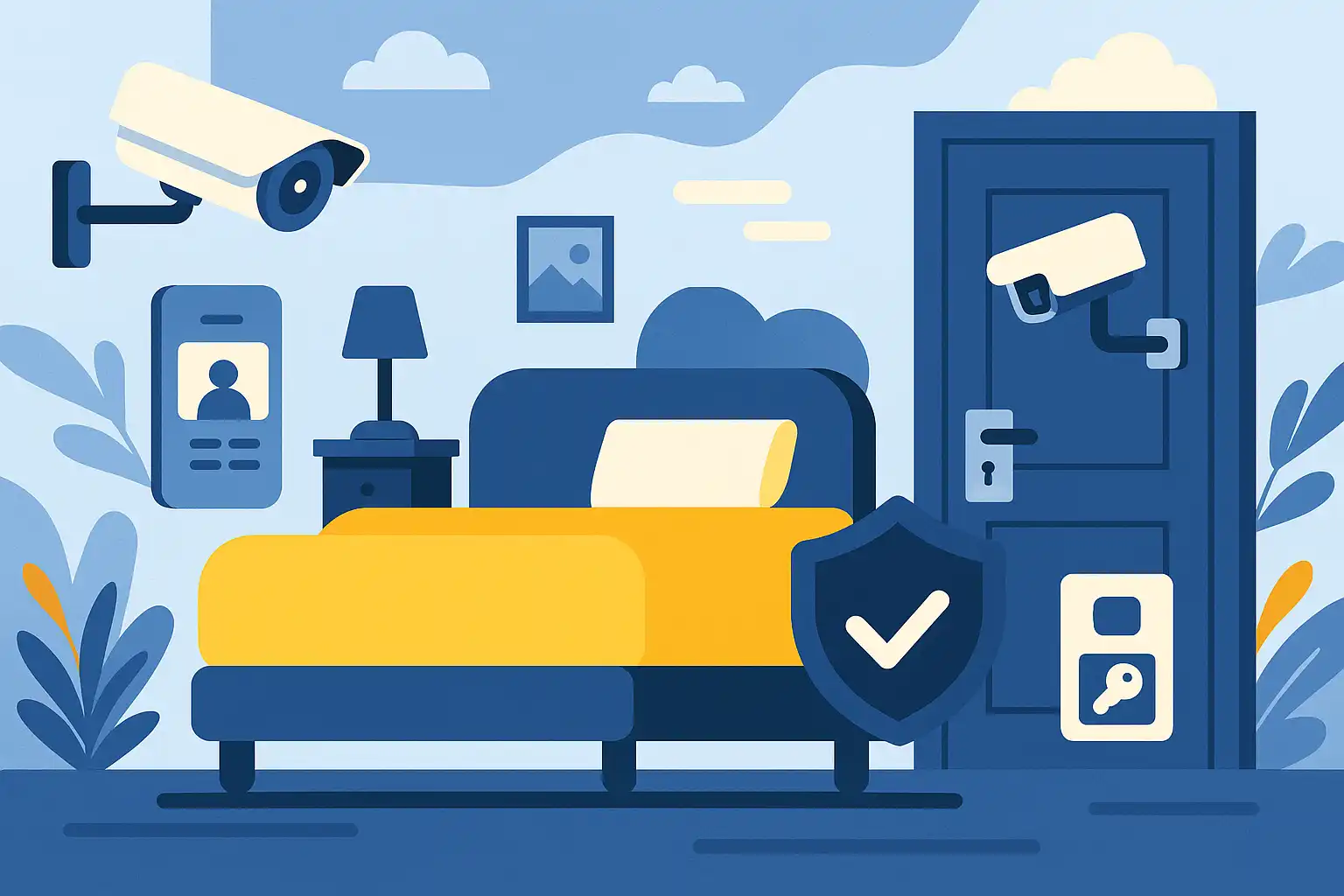
Hotel Security Systems: Modern Protection Solutions

Hotel Advertising: Complete Guide to Boost Bookings and Revenue
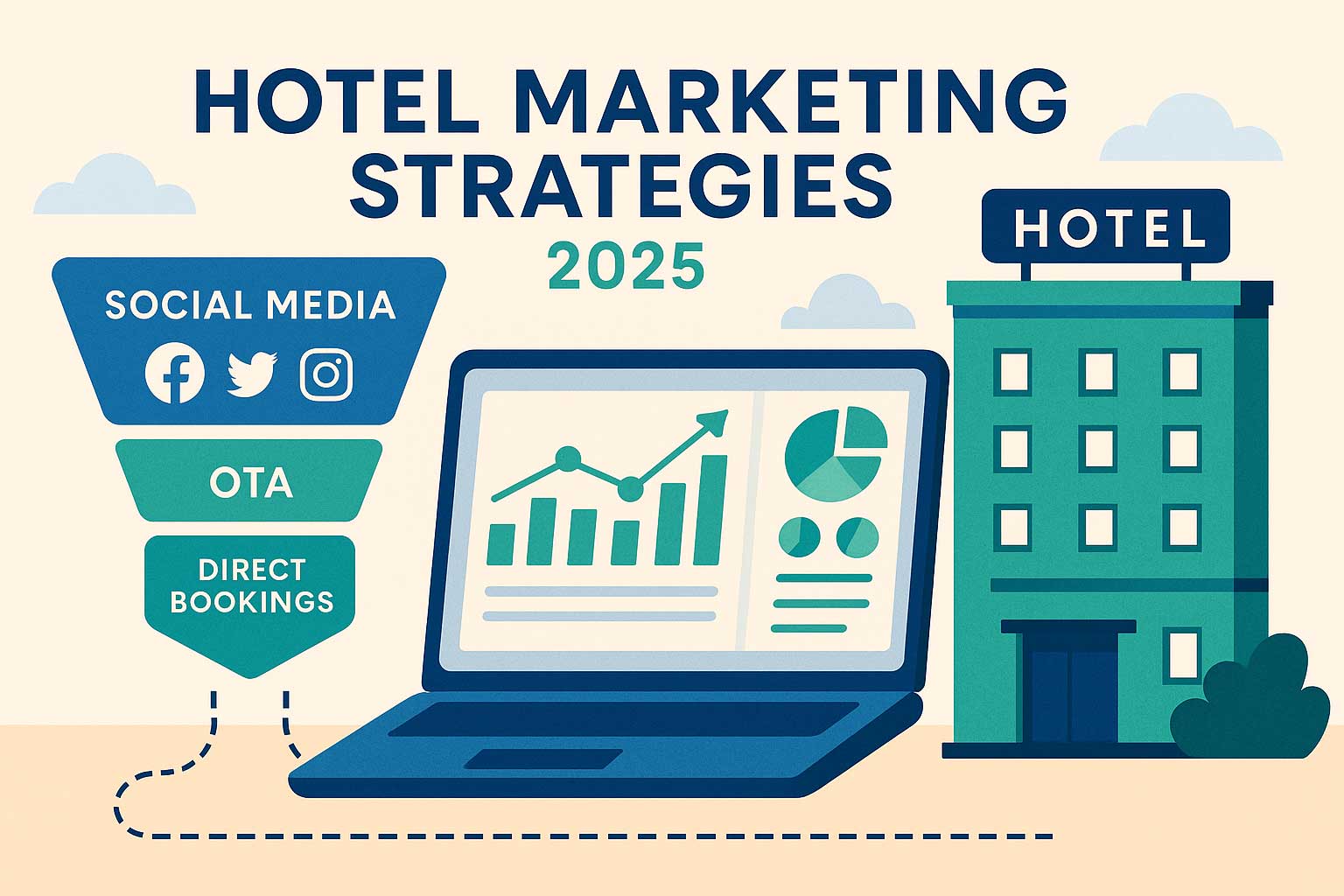
25 Hotel Marketing Strategy Ideas for 2025: Complete Guide

AI Reservation Agent: Revolutionizing Hotel Booking and Guest Experience

PMS Communication: Streamlining Property Management Through Effective Guest Messaging
Table of contents
The hospitality world is undergoing a digital makeover that's reshaping how hotels connect with guests at every stage of their stay. By 2025, more than 64% of independent hotels have jumped on the hotel chatbot bandwagon, and 88% of consumers have already chatted with bots in some form. This isn’t just about adding new tech—it’s a smart move to meet changing guest expectations and tackle operational hurdles head-on.
A hotel chatbot acts like an AI-powered assistant that handles guest interactions automatically, from answering booking questions to gathering feedback after a stay. These smart systems plug right into hotel websites, apps, and popular messaging platforms, offering a seamless, always-on way for guests to communicate.
Hotels today face some tough challenges: 65% are struggling with staffing shortages, guests want quick answers no matter where or when they ask, and there’s a growing push to cut down on costly third-party booking sites. Hotel chatbots help solve these problems while boosting guest happiness and driving more revenue.
In this guide, we dive into how hotel chatbots are changing the game in guest services, the benefits they bring, how to implement them smoothly, and real-life success stories from hotels big and small.
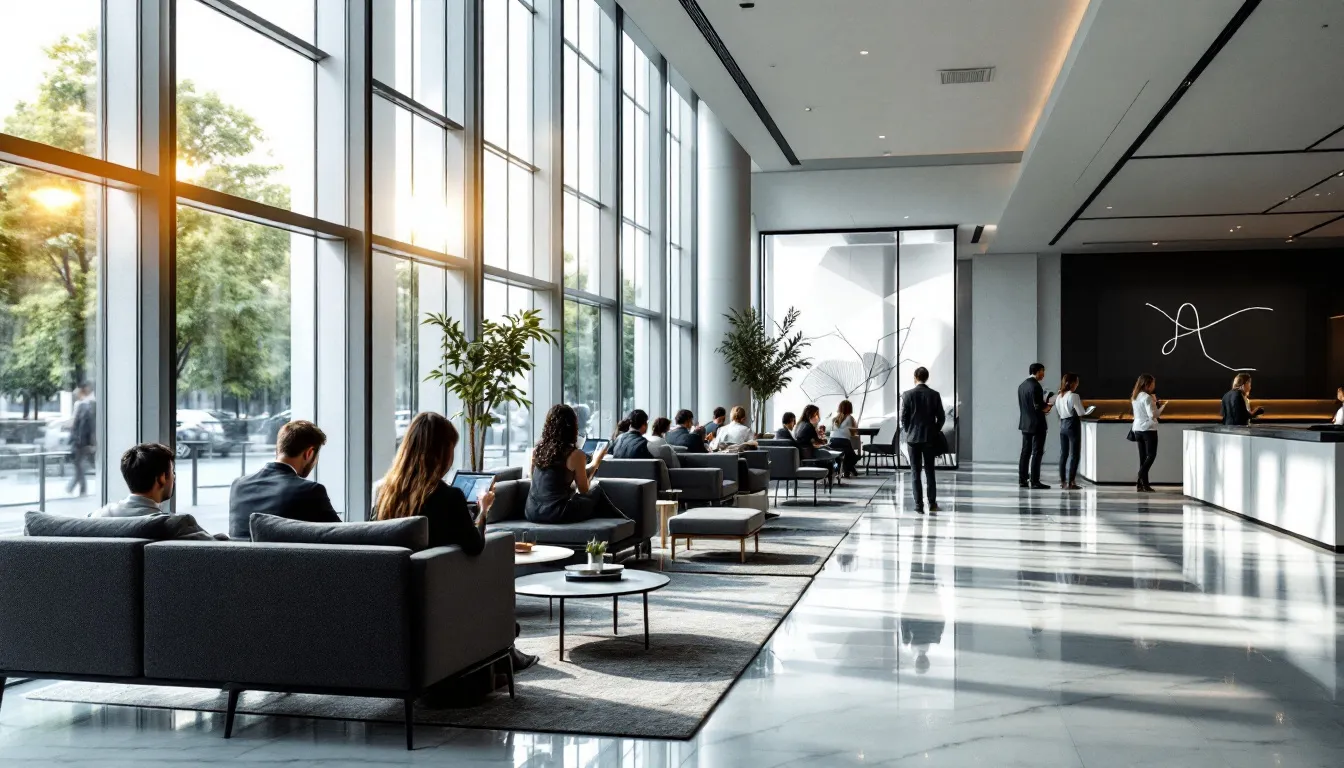
What is a Hotel Chatbot?
Simply put, a hotel chatbot is an AI-powered assistant designed to make guest interactions smoother and faster throughout their stay. Unlike traditional customer service that relies on human agents to answer every question, hotel chatbots use artificial intelligence and natural language processing to understand what guests are asking and provide quick, helpful responses across multiple channels.
These savvy ai agents connect directly with hotel websites, mobile apps, and popular messaging platforms like WhatsApp, Facebook Messenger, and Instagram. This means guests can reach out however they prefer—whether browsing the website, using the hotel’s app, or chatting on social media.
What really sets hotel chatbots apart from live chat is that they work independently. While live chat needs a human on the other end, hotel ai chatbots can juggle dozens of conversations at once, 24/7, without needing a break. This is especially handy during busy booking seasons or late-night hours when staff might not be available.
Modern hotel booking chatbots go beyond simple keyword matching. Thanks to advanced natural language processing, they grasp the context and even emotions behind guest questions. For example, if someone asks for “quiet rooms away from the elevator,” a smart hotel ai chatbot understands both the room preference and location request.
The numbers show how fast this tech is catching on: 64% growth in independent hotel chatbot use and 88% of travelers familiar with chatbots. Clearly, what was once experimental is now a must-have tool.
Hotel reservation chatbots cover a lot of ground—they help with booking management, check-in, room service, local tips, and collecting guest feedback. Automating these tasks helps hotels keep service consistent, cut costs, and respond faster.
Key Benefits of Hotel Chatbots for Properties and Guests
24/7 Guest Support and Instant Response
One of the biggest perks of hotel chatbots is their ability to answer guest questions instantly, any time of day. Traditional hotel staff can only cover so many hours and time zones, which leaves gaps in service. Chatbots fill those gaps by providing nonstop support without extra staffing costs.
This around-the-clock help makes a real difference to guest satisfaction. Hotels using ai chatbots see much faster response times, with most guest queries answered right away. That’s a big plus for international travelers dealing with jet lag, late arrivals, or early checkouts.
Typical questions handled by chatbots include Wi-Fi passwords, room service menus, checkout instructions, local attractions, and troubleshooting in-room tech. These simple requests make up most guest communications and can be handled smoothly by automation.
Fast replies don’t just make guests happy—they also help convert more bookings. When potential guests get quick answers about availability, pricing, or amenities, they’re less likely to look elsewhere. Hotel booking chatbots keep every inquiry engaged, boosting direct reservations.
Some advanced chatbots even anticipate guest needs based on their booking and past stays. For example, guests arriving on rainy days might get suggestions for indoor activities and dining options, while business travelers receive info about meeting rooms and express checkout.
Operational Cost Reduction and Staff Efficiency
The financial upside of hotel chatbots goes well beyond the initial setup. Hotels can slash customer service costs by up to 30% by automating routine guest chats with smart bots.
Most of this savings comes from chatbots handling around 70% of simple requests without involving humans. This frees hotel staff to focus on trickier issues that need a personal touch, boosting efficiency and job satisfaction.
Chatbots also streamline check-in by letting guests complete arrival steps digitally, cutting down on paper use and front desk lines. Hotels report needing fewer front desk staff during busy check-in times while improving guest experience with faster service.
With 65% of hotels facing staffing shortages, chatbots are a lifesaver during peak seasons and busy periods. They keep service steady no matter how stretched human resources are.
Beyond guest chats, hotel ai chatbots generate useful data on guest preferences, common questions, and peak contact times. Managers can use these insights to better schedule staff, spot training needs, and improve services.
By automating simple tasks, chatbots let human agents focus on upselling premium services, handling complex bookings, and delivering personalized concierge care—all of which help boost hotel revenue.
Revenue Growth Through Direct Bookings and Upselling
Hotels pay billions in commissions to online travel agencies (OTAs) every year, so encouraging direct bookings is a top priority. Hotel chatbots play a key role by offering instant, personalized booking help right on hotel websites and messaging channels.
Unlike static booking forms, chatbots guide guests through reservations interactively, answering questions in real time, suggesting alternate dates if needed, and highlighting special deals tailored to their needs.
Upselling is another area where chatbots shine. By analyzing guest profiles and booking history, chatbots recommend upgrades and extras like room upgrades for special occasions, spa packages for leisure travelers, or airport transfers for international visitors.
Timing and personalization are crucial for successful upselling. Smart hotel ai chatbots know when to suggest services—maybe recommending dining reservations during booking or local activities based on weather and interests.
Personalized chatbot offers outperform generic emails or ads because they speak directly to what guests want. Plus, integrating loyalty programs lets chatbots apply member benefits, explain points, and encourage repeat bookings, deepening guest engagement.
Multilingual Support and Global Guest Accessibility
Hotels welcome guests from all over the world, but language barriers can make communication tricky. Hotel chatbots solve this by offering seamless multilingual support without needing extra bilingual staff.
Modern ai chatbots support hundreds of languages and can detect a guest’s language preference from booking details, device settings, or initial messages. This means every guest gets the same high-quality service, no matter their native tongue.
Thanks to advanced natural language processing, chatbots don’t just translate words—they understand cultural nuances and regional language differences. For instance, “tea time” might mean afternoon tea to someone from the UK, but just a hot drink to an American guest.
Chatbots also adjust tone and recommendations to fit cultural expectations, making conversations feel natural and respectful.
This multilingual capability reduces the need for bilingual staff and ensures consistent service across all language groups, which is especially valuable for global hotel chains maintaining brand standards worldwide.
Types of Hotel Chatbots: AI vs Rule-Based Systems
Knowing the difference between AI-powered and rule-based chatbots helps hotels pick the right fit for their needs.
AI-Powered Conversational Chatbots
AI-powered hotel chatbots are the latest in conversational tech. They use natural language processing and machine learning to understand guest questions deeply and respond in a human-like way. These bots can grasp complex requests, context, and tailor replies based on guest history.
They get smarter over time, learning from every interaction to improve accuracy and spot new guest trends. Features like sentiment analysis let them detect if a guest is frustrated or happy and adjust their tone accordingly. Predictive recommendations suggest services before guests even ask, like restaurant bookings based on dining history and weather.
AI hotel chatbots create detailed guest profiles by analyzing booking patterns and preferences. A business traveler might get info on meeting rooms and express checkout automatically, while leisure guests receive local attraction suggestions.
While AI chatbots require more technical setup and ongoing tuning, the payoff is higher guest satisfaction and revenue compared to simpler bots.
Rule-Based Chatbots with Predefined Flows
Rule-based chatbots follow set conversation paths and response rules. They’re predictable and reliable for handling common questions like FAQs, booking info, and service requests.
Hotels can control exactly how these bots respond, ensuring messaging matches brand voice and policies. They’re great for straightforward tasks like explaining check-in procedures or listing amenities.
Rule-based bots are easier and cheaper to set up, making them ideal for smaller hotels or those just trying out chatbot tech.
However, they struggle when guests ask unexpected questions or complex queries, often needing to hand off to human agents, which can slow things down.
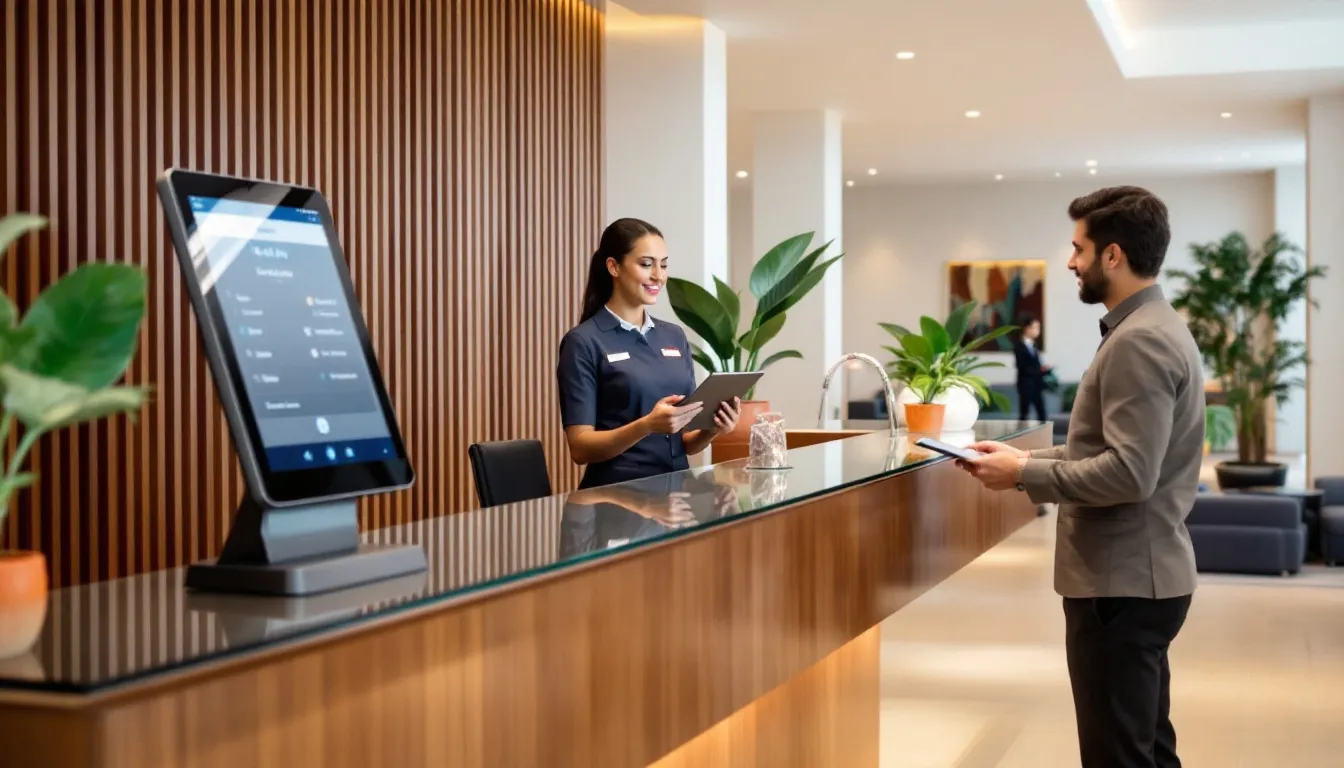
How to Successfully Implement a Hotel Chatbot
Rolling out a hotel chatbot takes thoughtful planning, clear steps, and ongoing tweaks to get the best results.
Platform Selection and Integration Requirements
Picking the right chatbot platform is the foundation. Look for strong integration with your property management system (PMS), multi-channel support, and clear analytics to track performance and guest interactions.
PMS integration is key so chatbots can access real-time booking info, room availability, and guest preferences. This lets them provide personalized answers and upsell smartly. Make sure your platform syncs well with your existing hotel systems.
Multi-channel support means guests can chat via website, app, or social media without losing conversation flow. The best hotel chatbot platforms keep chats consistent across all touchpoints.
Also consider scalability—your chatbot should grow with your hotel’s needs, handling more chats and new features as you expand.
Vendor support matters too. Choose a provider with good customer service, tech know-how, and a roadmap for ongoing improvements.
Budget for more than just the platform—include setup, staff training, maintenance, and upgrades. Expect ROI timelines of 6-12 months for small hotels and up to 18 months for bigger properties.
Staff Training and Change Management
Training your team is crucial to smoothly blend chatbots into daily operations while keeping service top-notch.
Staff need to understand what chatbots can do, their limits, and how to monitor conversations. They should know when and how to step in for complex guest issues.
Define clear escalation processes so handoffs from bot to human are seamless. Train employees on accessing chat histories and ensuring continuity.
Chatbots free staff from repetitive tasks, letting them focus on meaningful guest interactions. Help your team see chatbots as tools that improve their work, not threats to their jobs.
Adjust workflows so chatbot-generated requests reach the right departments quickly—front desk, housekeeping, maintenance, concierge.
Manage any resistance by highlighting how chatbots reduce workload and improve guest satisfaction.
Testing, Launch, and Optimization Process
Test your chatbot thoroughly before going live. Beta test internally and with select guests to iron out any confusing responses or glitches.
Start with a soft launch, rolling out features gradually. Begin with FAQs, then add booking help and service requests.
Monitor key metrics like response accuracy, completion rates, and guest satisfaction. Use guest feedback from surveys and reviews to spot improvement areas.
Keep refining chatbot content and capabilities to stay current with guest needs and expectations.
Real-World Hotel Chatbot Success Stories
Large Hotel Chains Leading Innovation
Holiday Inn Express & Suites has made waves by using chatbots to engage guests proactively and boost revenue. Their ai powered chatbot identifies the best moments to suggest services—like meeting rooms for business travelers or spa packages for leisure guests—leading to higher acceptance rates than generic promos.
Rolling out across multiple locations gave them insights into regional and seasonal trends, letting them tailor chatbot responses for different markets. The system’s ability to adjust recommendations based on local events and weather boosted guest satisfaction and revenue.
Komodo Resort partnered with Prostay to automate key guest interactions and streamline operations. Their AI chatbot handles room service orders with personalized menu suggestions, factoring in guest preferences and special occasions.
By matching the chatbot’s personality to the resort’s vibe, Komodo delivers a smooth, engaging guest experience that guests love, reflected in higher satisfaction scores and increased room service sales.
Specialized Chatbot Solutions for Hotels
Prostay is a standout platform offering deep integration with Property Management Systems (PMS) and Point of Sale (POS) systems to deliver a full AI guest service solution. It acts as an AI reservations agent and AI front desk assistant, automating core hospitality tasks with precision.
Its chatbot handles booking inquiries, availability checks, and reservation changes in real time, giving prospective guests fast, personalized support throughout their booking journey. Automating front desk interactions cuts wait times and reduces booking drop-offs.
Prostay’s integration with PMS and POS means it always has up-to-date room inventory, pricing, and guest profiles, allowing tailored recommendations and upsells like dining and extras. This keeps guest interactions synced with hotel operations, smoothing workflows.
The platform’s AI analytics provide actionable insights into guest preferences and behavior, helping hotels fine-tune services and marketing.
Hotels using Prostay often see 20-40% boosts in direct booking conversions, 30-50% faster response times, and big drops in routine inquiry calls. Typical implementation takes 2-6 weeks depending on customization.

Future Trends in Hotel Chatbot Technology
Hotel chatbot tech keeps evolving fast as AI improves and guests expect smoother digital experiences. Here are some trends shaping the future:
Voice-activated chatbots will let guests control smart room features—lighting, temperature, entertainment, service requests—hands-free. These bots won’t just follow commands but predict guest preferences and adjust settings automatically.
Augmented reality (AR) will enhance virtual concierge services and property tours. Guests might use AR to explore local restaurants, attractions, or hotel amenities before booking, boosting confidence and reducing cancellations.
Predictive analytics will turn chatbots from reactive helpers into proactive experience enhancers. They’ll analyze data like guest profiles, weather, and events to suggest services before guests ask.
Integration with blockchain and biometric tech will improve loyalty program security and guest verification, all accessible through chatbots.
Generative AI will enable chatbots to create personalized content—custom itineraries, dining suggestions, special offers—tailored in real time to guest feedback.
The market is booming, expected to hit $5.1 billion by 2030 with 23.3% annual growth. By 2027, virtual assistants will handle a quarter of customer service interactions, making chatbot adoption essential.
The future will bring seamless omnichannel experiences where chatbots maintain conversation context across websites, apps, social media, voice assistants, and in-room devices.
As AI advances, chatbots will get better at understanding context, emotion, and subtle requests, but balancing automation with human warmth will remain key to great hospitality.
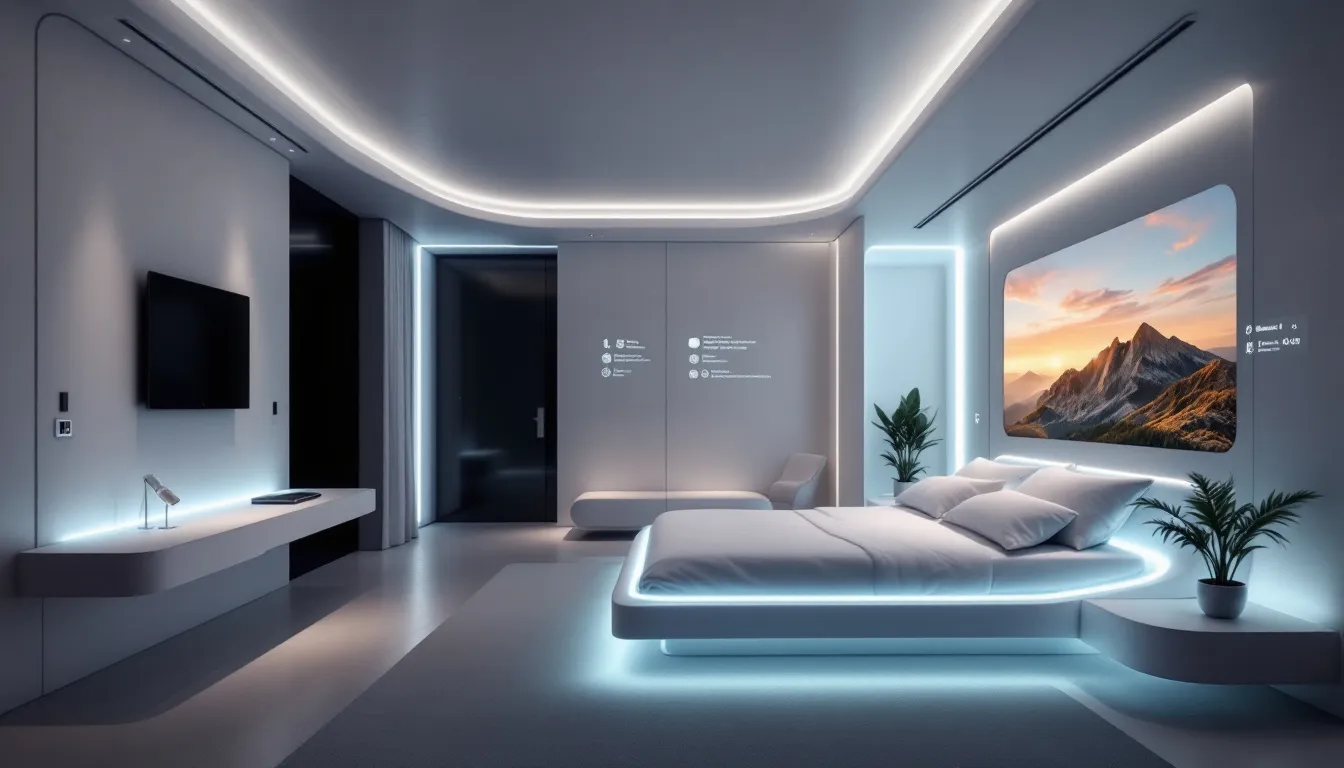
Conclusion
Hotel chatbots have moved from niche tech to essential tools that transform guest service and communication across the entire guest journey. The proof is in the results: hotels using advanced chatbot solutions see big gains in efficiency, guest satisfaction, and revenue, all while cutting reliance on costly third-party booking sites.
The benefits go far beyond saving money. Hotel ai chatbots deliver 24/7 availability, instant replies, and personalized recommendations that human staff alone just can’t match consistently. Plus, multilingual support and the ability to juggle many chats at once give hotels a real edge in meeting rising guest expectations.
Success means planning carefully, picking the right platform, and committing to ongoing improvements. Hotels that understand their guests, challenges, and tech needs get the best results and fastest ROI.
The future of hospitality blends smart technology with human care to create guest experiences that exceed expectations while staying sustainable. Hotel chatbots are the foundation, handling routine tasks and freeing staff to focus on complex, personal guest needs.
As the industry adapts, chatbot sophistication and importance will only grow. It’s no longer a question of if hotels should adopt chatbot technology, but how quickly they can harness this powerful tool to stay competitive and keep guests happy.
If you’re thinking about adding a chatbot, start by assessing your current guest communication pain points, spotting automation opportunities, and exploring platforms that fit your needs and budget. The journey to better, faster, more guest-focused service starts with one step.
